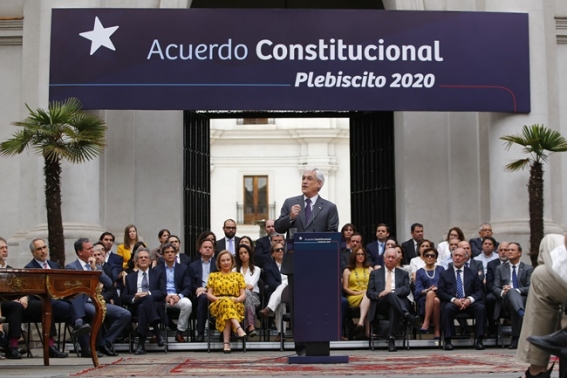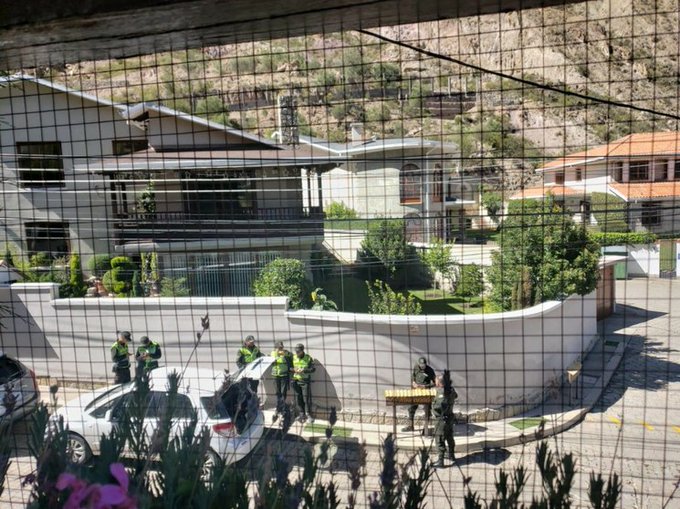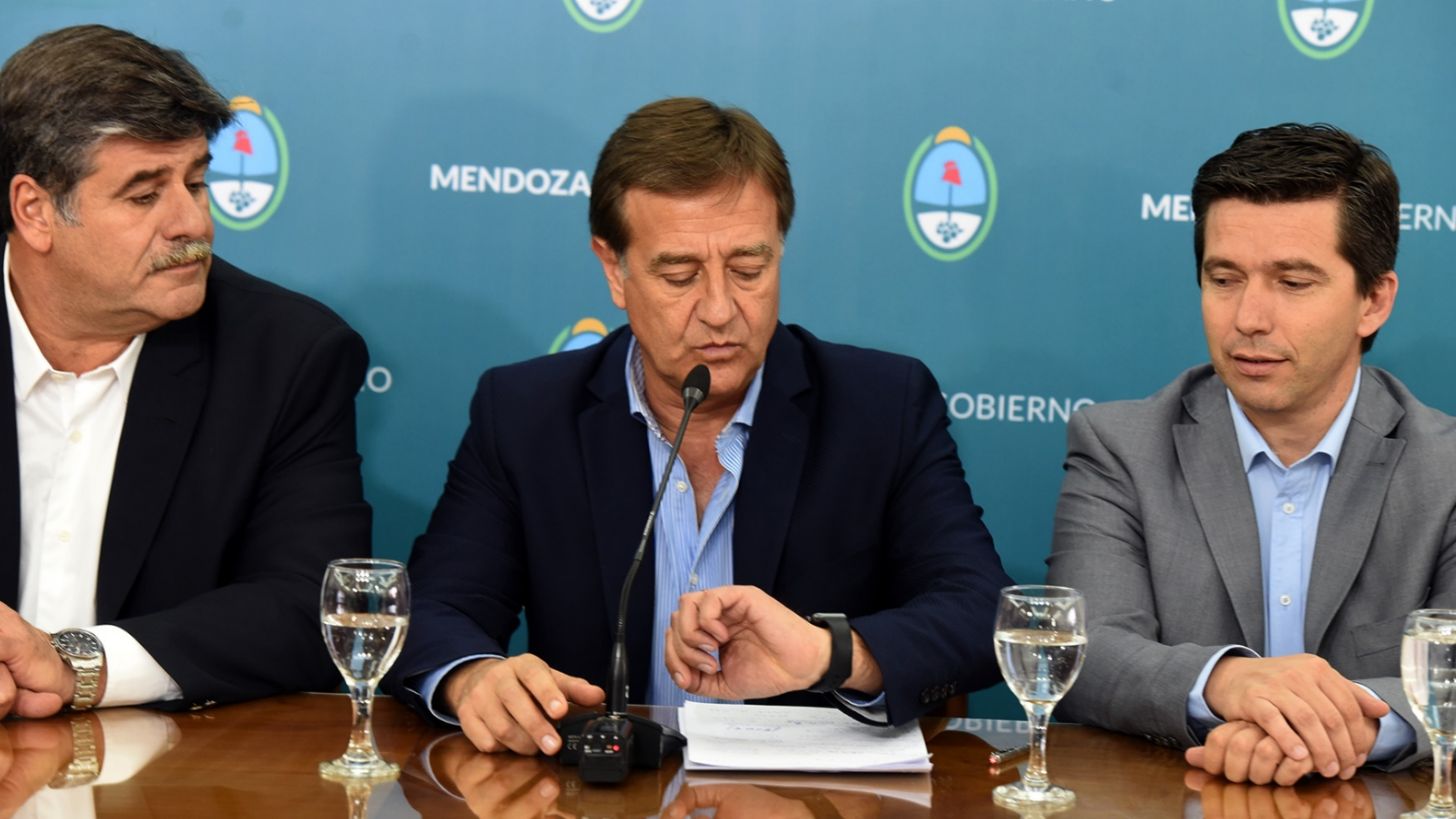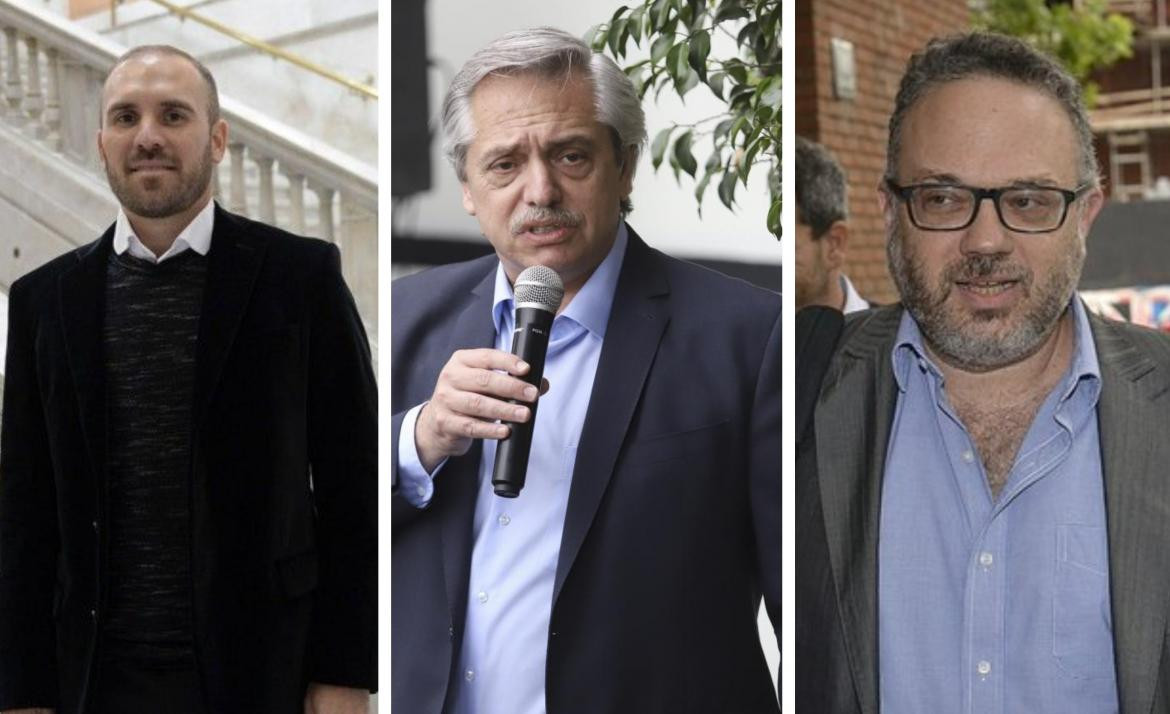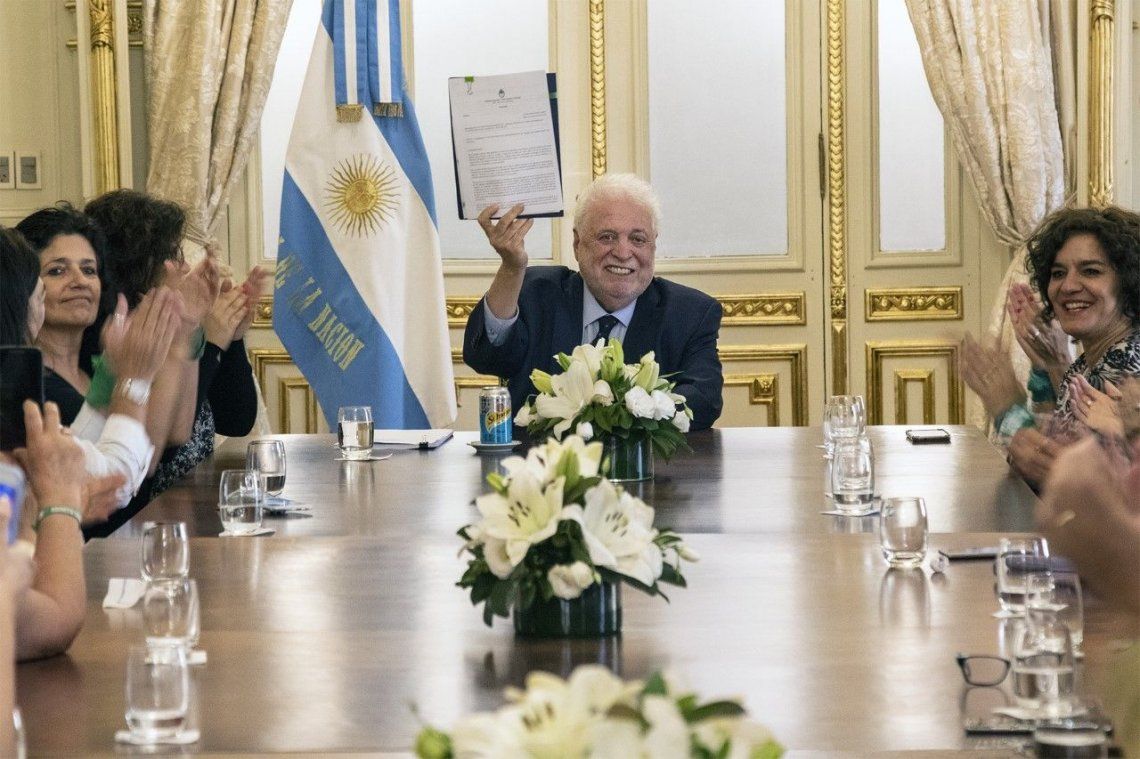peppertree
peppertree's JournalChilean president authorizes referendum to replace constitution
Chilean President Sebastián Piñera signed a decree Friday to hold a referendum regarding the possible replacement of the country's constitution, enacted by the Augusto Pinochet dictatorship in 1980.
The president held a press conference in which he explained that the decree invites Chile's 14.4 million registered voters to participate in the constitutional plebiscite set to take place on April 26.
He incorporated the agreement with the opposition amid ongoing anti-government protests. At least 29 Chilean demonstrators have been killed since the recent wave of protests over rising prices and low living standards began on October 19.
Some 300 protesters have reportedly lost an eye in what has been denounced as a deliberate policy on the part of the Carabineros miltarized police to aim for the eyes.
The April 26 referendum will give voters a choice between a "mixed convention," made up equally from members of congress and elected citizens; or a "constituent convention," composed of people chosen solely for that purpose.
If the plebiscite is approved, the election of constituents will take place in October to coincide with regional and municipal elections. And the new Constitution - to be drafted no later than a year from that date - will be ratified in another plebiscite, with a mandatory vote.
According to the latest Cadem survey, 86% of Chileans are in favor of a new constitution - with 61% supporting a constituent convention and 36% a mixed convention.
At: https://translate.google.com/translate?hl=en&tab=wT&sl=auto&tl=en&u=https%3A%2F%2Fwww.telam.com.ar%2Fnotas%2F201912%2F419865-chile-plebiscito-constitucional-abril.html
Chilean President Sebastián Piñera announces the April 26 referendum on the possible replacement of the country's dictatorship-era constitution.
The referendum will be the first step in promulgating a new constitution, which may be enacted as early as October 2021.
Activists, many of whom have been protesting since October for fundamental changes in the prosperous but highly unequal nation of 19 million, are seeking greater social guarantees in the new constitution.
Mexico says Spanish diplomats' cars blocked by Bolivia at La Paz embassy
Mexico’s government said Bolivian police had impeded the departure of Spanish officials visiting the Mexican ambassador in La Paz on Friday, widening a dispute over Bolivia’s surveillance of its diplomatic facilities.
Two Spanish diplomats were about to leave the Mexican ambassador’s residence when they were told their cars had been detained some minutes away and would not be allowed to re-enter the compound, Mexico’s foreign ministry said in a statement.
Mexico says Bolivian authorities have harassed its diplomatic staff in a row centering on the Mexican government’s decision to grant asylum to nine people, now housed in its diplomatic facilities in La Paz.
Some of them are wanted by Bolivia’s conservative dictatorship.
Interim Bolivian President Jeanine Áñez took power last month after long-serving socialist leader Evo Morales resigned in a November 10 coup, and fled to Mexico City after a presidential election that the Organization of American States said was rigged in his favor.
Morales left Mexico on December 11 and is now in Argentina. He's announced a political rally for Sunday, in which he's expected to announce the Movement To Socialism (MAS) candidate for the upcoming presidential elections.
Neither Áñez nor Morales will be on the ballot for the election, whose date has been postponed numerous times.
At: https://www.reuters.com/article/us-mexico-bolivia/mexico-says-spanish-diplomats-cars-blocked-by-bolivia-at-la-paz-embassy-idUSKBN1YV17G
Bolivian police search cars after surrounding the Mexican Embassy in La Paz, with sharpshooters positioned nearby.
Vehicles of visiting Spanish diplomats were detained by police, and some were later harassed by right-wing civilians as police stood by.
Bolivian dictator Jeanine Áñez reportedly ordered the move in retaliation for the embassy's sheltering nine former officials in the deposed Evo Morales administration.
Mexican President Andrés López Obrador has asked the International Court of Justice to mediate.
Governor of Mendoza Province, Argentina, suspends mining deregulation law
The governor of the western Argentine province of Mendoza, Rodolfo Suárez, announced today that he would suspend a controversial new mining law signed on Monday, which would reverse a 12 year-old ban on strip mining in the province.
Law 9209 overrides bans on strip mining and on the use toxins such as cyanide, mercury, and sulphuric acid enacted in 2007 by Law 7722.
Opposition Justicialist Party legislators have called on Suárez, 56, to rescind the law and "start from square one."
Argentina's Delegate to UNESCO, film maker and environmental activist Pino Solanas, called it an "environmental retreat that endangers the future of the region."
"Mendoza," Solanas noted, "is in a water emergency since 2010. We must call an emergency session so that the Provincial Legislature may quickly repeal Law 9209."
The law would have gone in effect in only three counties: Las Heras, Malargüe, and San Rafael. These counties, however, occupy more than half the province's land area and are home to many of the glaciers and river sources that provide water for the largely arid province of 2 million.
Since Law 9209's passage on December 20, towns and cities in Mendoza have been rocked by protests, caravans and roadblocks demanding the reinstatement of Law 7722.
"The suspension of the mining law," Solanas tweeted, "is the result of the struggle and the demonstrations."
At: https://translate.google.com/translate?hl=en&tab=wT&sl=auto&tl=en&u=http%3A%2F%2Fwww.infonews.com%2Fnota%2F326376%2Fel-gobierno-de-mendoza-suspendio-la-polemica
Mendoza Governor Rodolfo Suárez checks the time during today's press conference in which he announced the suspension of the contentious mining deregulation law.
The law, opponents noted, also benefits Suárez's political godfather, Ernesto Sanz - who sits on the board of a mining firm that stands to benefit from the new law.
Suárez is one of three remaining right-wing governors in Argentina.
Argentine Congress approves Fernandez recovery bill
Argentina's Senate passed President Alberto Fernández's sweeping emergency economic package in the early hours of Saturday morning, which the new leader hopes will drag Argentina out of crisis.
It is Fernández's first legislative victory since he took office on December 10, after defeating Mauricio Macri in the presidential election amid the worst economic and debt crisis in two decades.
The Social Solidarity and Productive Recovery Bill passed early Saturday by 41 to 23, after its passage in the Lower House on Friday by 134 to 110.
Fernández's center-left 'Front for All' was joined by a handful of dissident Peronists and by lawmakers from minor parties - but former President Macri's right-wing 'Let's Change' remained unified in their opposition.
In both houses, 'Let's Change' attempted to deny the bill quorum - albeit unsuccessfully.
The sweeping legislative package includes increasing wealth taxes from 0.25% to 1.5% for the highest bracket, increases of 5.3% in most farm export taxes, a 30% surcharge on foreign currency purchases - a major vehicle for capital flight.
But the bill also includes subsidized credit for business and farms, eliminating taxes on time deposits (a popular middle class investment), a 6-month freeze in utility rates (which rose over 2000% under Macri), and new social benefits including bonuses for low-income retirees and a food card - similar to an EBT card - for the poorest two million households.
Twin economic and debt crises inherited from Macri have pushed income poverty rates from 28% in 2017 to nearly 41% currently.
Fernández faces a $195 billion public foreign debt - much of which has been in default since September - 52% inflation, and a 7.4% fall in GDP since the crisis began in April 2018.
At: https://www.batimes.com.ar/news/argentina/fernandezs-economic-emergency-law-wins-approval-in-senate.phtml
Argentine President Alberto Fernández examines a draft of his Social Solidarity and Productive Recovery Bill, passed by Congress early this morning.
Fernández's bill seeks to stimulate economic growth, while reining in deficits with higher taxes on the wealthy, currency trade, and large agroexporters - the biggest beneficiaries under the previous Macri administration.
Why Trump's steel tariff didn't save US Steel workers from layoffs
President Donald Trump told an audience of Pennsylvania union workers last August that his 25% tariff on steel imports was reinvigorating the country's steel industry, and leading companies such as U.S. Steel to expand.
That upbeat assessment is now in question following United States Steel Corp.'s announcement late Thursday that it plans to give layoff notices to take effect later next year to 1,545 workers at its Great Lakes Works production plants, situated in Ecorse and River Rouge on the Detroit River. The plants serve the auto industry.
Steel industry insiders say the layoffs are one likely result of the dramatic drop in steel prices this year and a current supply glut in the market.
Steel prices shot up in the aftermath of Trump's announcement of tariffs in early 2018, only to collapse once older domestic steel plants restarted production and tariff-exempted foreign steel continued arriving on shore.
"Ultimately the steel tariffs did not do what they were designed to do," said Chris Olin, a steel analyst with Longbow Research in Independence, Ohio.
At: https://www.freep.com/story/money/business/2019/12/21/trumps-steel-tariff-us-steel-layoffs/2712706001/
On the chopping block? The U.S. Steel plant on Zug Island, near Detroit.
Argentine bond markets rally on currency policy announcements
Argentine bond markets rallied today on announcements by Economy Minister Martín Guzmán of policy changes designed to limit capital flight.
The nation's most commonly subscribed sovereign bond, Bonar 24, rose 7.4% - and peso-denominated issues rose as much as 13.5%.
JP Morgan’s Emerging Markets Bond Index (EMBI+) country risk for Argentina - the interest premium paid over U.S. Treasuries - fell 146 basis points to 1968, the lowest in two months.
The rally took place after Guzmán announced a 30% surcharge would be applied to dollar purchases as well as on the purchase of services charged in dollars.
"What we're doing is protecting the few reserves we have, to prioritize production - which requires imported supplies," Guzmán noted.
Twin crises
Argentine bond prices have risen steadily since Guzmán and President Alberto Fernández took office on December 10, with the popular Bonar 24 issue up 17.5%.
They inherited twin economic and debt crises from the right-wing Mauricio Macri administration - including a $45 billion IMF debt, 52% inflation, and a sharp recession.
Most other currency restrictions - notably a $200 monthly dollar purchase limit - had already been enacted in September and October by Macri in a dramatic policy about-face.
Macri had lifted most currency regulations four years earlier - prompting a doubling in the public foreign debt to over $200 billion as capital flight soared.
Debt obligations over the next four years total over $148 billion, with the country's projected $15 billion trade surplus for 2019 dwarfed by nearly $20 billion in foreign debt interest.
"We need a good-faith conversation on the country's ability to service its debts," Guzmán concluded.
At: https://translate.google.com/translate?hl=en&tab=wT&sl=es&tl=en&u=https%3A%2F%2Fwww.ambito.com%2Ffinanzas%2Fsp-merval%2Ftras-los-anuncios-guzman-volaron-135-los-bonos-y-el-riesgo-pais-perforo-los-2000-puntos-n5071746
Argentine Economy Minister Martín Guzmán in today's press conference, in which he outlined measures to limit capital flight and to increase pensions (which have lost 20% of their real value since 2017).
Guzmán faces twin debt and economic crises inherited from Mauricio Macri's 2015-19 tenure, and bond markets have reacted positively to his efforts on debt sustainability.
"The country was ran into debt brutally over the past four years - but the debt was not used to increase productive capacity that would have sustained high dollar outlays," the Columbia University academic noted.
"That's the reality, and everyone recognizes it."
Leading Argentine small farmers group supports increase in export taxes
The National Agrarian Forum (FAN), whose members employ 54% of all farm labor in Argentina, issued a resolution today in support of agricultural export tax hikes announced Saturday by President Alberto Fernández.
The additional 5.3% withholding on grain and soy exports, and 4% on most other farm and seafood exports, is expected to raise an additional $2 billion in annual federal tax revenue for Argentina - currently reeling from a debt crisis inherited from the right-wing Mauricio Macri administration that left office on December 10.
"The National Agrarian Forum supports redistributive measures such as export withholdings," the FAN resolution stated, "especially in times of a Social and Food Emergency."
Consumer prices quadrupled during Macri's four-year term - causing a 23% fall in real pay and a doubling in hunger to 8.9%.
Over 2,000 small farmers went out of business amid soaring costs and interest rates.
FAN distanced themselves from larger landowners in the Argentine Rural Society (SRA)-led Mesa de Enlace roundtable - which expressed opposition to the tax hike while remaining "open to dialogue."
The new policy, according to President Fernández, "restores rates to those applied by Macri" last year - in the early months of the debt crisis.
Two agricultures
"There isn't one agriculture," the FAN recalled.
"On one hand, there is concentrated agriculture that gains through financial speculation and devaluation, which evicts rural and indigenous families, and is not concerned with the destruction of native forests or pesticide contamination."
"On the other hand, we in cooperative agriculture have been harmed by devaluation."
FAN and the Mesa de Enlace agree on segmented withholding, which would reduce withholding for smaller and less profitable farm exporters.
At: https://translate.google.com/translate?hl=en&tab=wT&sl=auto&tl=en&u=http%3A%2F%2Fwww.biodiversidadla.org%2FNoticias%2FRetenciones-el-campo-que-si-las-apoya
Leaders of the Mesa de Enlace (Liaison Roundtable), representing larger landowners, following a meeting with Argentine Agriculture Minister Luis Basterra.
The National Agrarian Forum, representing smaller farmers - over half the total - distanced itself from the roundtable by backing higher export taxes - but has expressed the need for "segmented withholding" proportional to profitability.
"Let those who have more, pay more."
Argentina raises agricultural export taxes
Argentine President Alberto Fernández approved a series of export tax increases today, continuing a policy adopted last year by his conservative predecessor, Mauricio Macri, in response to a mounting debt crisis.
The measure, as outlined in the decree, was based on "the serious situation that public finances are going through," such that "it is necessary to adopt urgent fiscal measures that allow, at least partially, to meet budget outlays with genuine resources."
The export tax hikes are expected to raise up to $2 billion in 2020 - a fraction of the projected $18 billion budget deficit this year, or 4% of GDP.
Export withholding rates thus rose from 5% to 9% for meats, seafood and flour, among others; 6.7% to 12% for grains (mainly corn and wheat); and from 24.7% to 30% for soy.
Exports such as fruit, artisanal and industrial products - the hardest hit by the country's 20 month-old recession - will see no tax increase, and will instead be taxed at the lowest bracket: 3 pesos per dollar, or 4.7% currently.
The measure follows a similar tax hike decreed by former President Macri on September 3, 2018, which raised withholding rates from 0% to 10.8% for grains and from 23% to 28.8% for soy (1.2% below the new rates) - but which had been gradually reduced to 6.7% and 24.7% currently.
Trade surplus and interest outlays
Reaction from farm lobbies was varied, with the head of the powerful Argentine Rural Society, Daniel Pelegrina, lamenting that "when (Fernández) was a candidate he told us we'd be consulted and this did not happen; (Agriculture Minister Luis) Basterra met with us on Thursday and said nothing."
Representatives from the Argentine Beef Promotion Institute (IPCVA) indicated, however, that they "have no problem" with a withholding rate of up to 15% - provided that no restrictions are applied to its rapidly growing Chinese market.
Argentine beef exports were among the few bright spots amid the worst recession in two decades: beef exports during first 10 months of 2019 rose 52% from a year earlier to $2.4 billion (4.5% of the total) - 64% of which was bought by China.
Amid a 25% collapse in imports, the nation's trade surplus is projected to reach $15 billion this year - a surplus dwarfed by nearly $20 billion in foreign debt interest outlays.
At: https://translate.google.com/translate?hl=en&tab=wT&sl=auto&tl=en&u=https%3A%2F%2Fwww.cronista.com%2Feconomiapolitica%2FRetenciones-un-cambio-que-garantiza-a-Alberto-unos-us-2000-millones-extra-20191214-0007.html
Argentine Economy Minister Martín Guzmán, who oversees international accounts, including trade and foreign debt; President Alberto Fernández; and Production Minister Matías Kulfas, who oversees domestic economic policy.
Today's measure seeks add $2 billion in revenue; but raises agricultural export taxes to just 1.2% over September 2018 levels.
The country's foreign debt crisis demands 15% of its federal budget - and more than its entire, $15 billion trade surplus this year.
Argentine soy giant Vicentin suspends crushing amid debt crisis
Argentine soy crushing giant Vicentín has halted most of its operations as the company battles to restructure approximately $1 billion in debt after defaulting earlier this month.
The production issues affect crushing at Vicentín’s processing plants and threaten to ripple through global markets and hit domestic supply of edible oils.
Vicentín, founded in 1929, is Argentina’s top exporter of processed soy and an iconic brand in the South American grains powerhouse. Argentina is the world’s Nº 1 supplier of soymeal livestock feed and soyoil.
The firm, with revenues of $4.2 billion, shipped 929,000 tons of soy oil and 4.4 million tons of soy flour in 2018.
Macrisis
Vicentín's finances were strained by an August 28 decision by the former Mauricio Macri administration, which left office Tuesday, to suspend payments on short-term treasuries.
The measure, part of the "Macrisis" that began with the April 2018 implosion of a carry-trade debt bubble known locally as the "financial bicycle," has impacted businesses, the social security fund, and mutual funds - all of which earned sizable interest income from the defaulted treasuries.
"There has never before been a default on peso-denominated debt," Claudio Belocopitt, CEO of Argentina's largest private hospital chain, Swiss Medical Group, noted at the time.
"Reprofiling is just a word they invented to keep from admitting they stole it all."
At: https://www.reuters.com/article/us-argentina-grains-vicentin/argentine-soy-giant-vicentin-suspends-crushing-amid-debt-crisis-sources-idUSKBN1YH24R
View of Vicentín's soybean crushing complex in Timbúes, north-eastern Argentina - the largest such complex in the world.
The country's top exporter of processed soy, Vicentín is one of a number of Argentine firms impacted by former President Mauricio Macri's August 28 decision to suspend payments on short-term treasuries - a favorite hedge investment by Argentine business and mutual funds alike.
Vicentín's insolvency is one of a number of economic problems inherited by the Alberto Fernández administration. Fernández has pledged to reduce interest rates (the prime rate is currently around 70%), and extend public credit facilities to struggling employers.
Argentina's new government moves to guarantee access to abortion in rape cases
Women and girls in Argentina seeking to end pregnancies caused by rape will be guaranteed access to abortion under a protocol announced on Thursday aimed at reducing the latitude hospitals have in deciding whether or not to perform the procedure.
Argentine law, which dates from 1921, allows abortion in case of rape or threat to the life or health of the mother.
But abortion rights advocates say the law is not always applied across the largely Roman Catholic country and that local hospitals have too much power to decide which cases fall under the legal criteria.
““We are respectful of conscientious objection but conscientious objection cannot be used as an institutional alibi for not complying with the law,” Health Minister Ginés González García told a news conference.
He was sworn in on Tuesday after moderate Peronist President Alberto Fernández was inaugurated.
A similar, albeit more narrow, protocol was signed on November 21 by González's predecessor, Health Secretary Adolfo Rubinstein - but was repealed within hours by then-President Mauricio Macri.
Rubinstein resigned in protest.
Macri, who has long opposed abortion rights, left office on December 10 after becoming the first president in Argentine history to lose a re-election bid.
Despite Argentina's restrictive abortion laws, an estimated 300,000 abortions are performed annually - up to 50,000 of which result in dangerous complications, and, in 2017, in 30 deaths.
Fernández has announced his intention to send a bill to Congress legalizing abortion on demand.
At: https://www.reuters.com/article/us-argentina-abortion/argentinas-new-government-moves-to-guarantee-access-to-abortion-in-rape-cases-idUSKBN1YG2RH
Argentine Health Minister Ginés González García holds up the legal abortion guideline signed yesterday.
He's preparing a bill to legalize abortion on demand - rather than on the narrow rape/health exceptions current law (dating from 1921) allows for.
But the bill's passage is far from certain.
Profile Information
Member since: Thu May 18, 2017, 12:36 PMNumber of posts: 22,268
